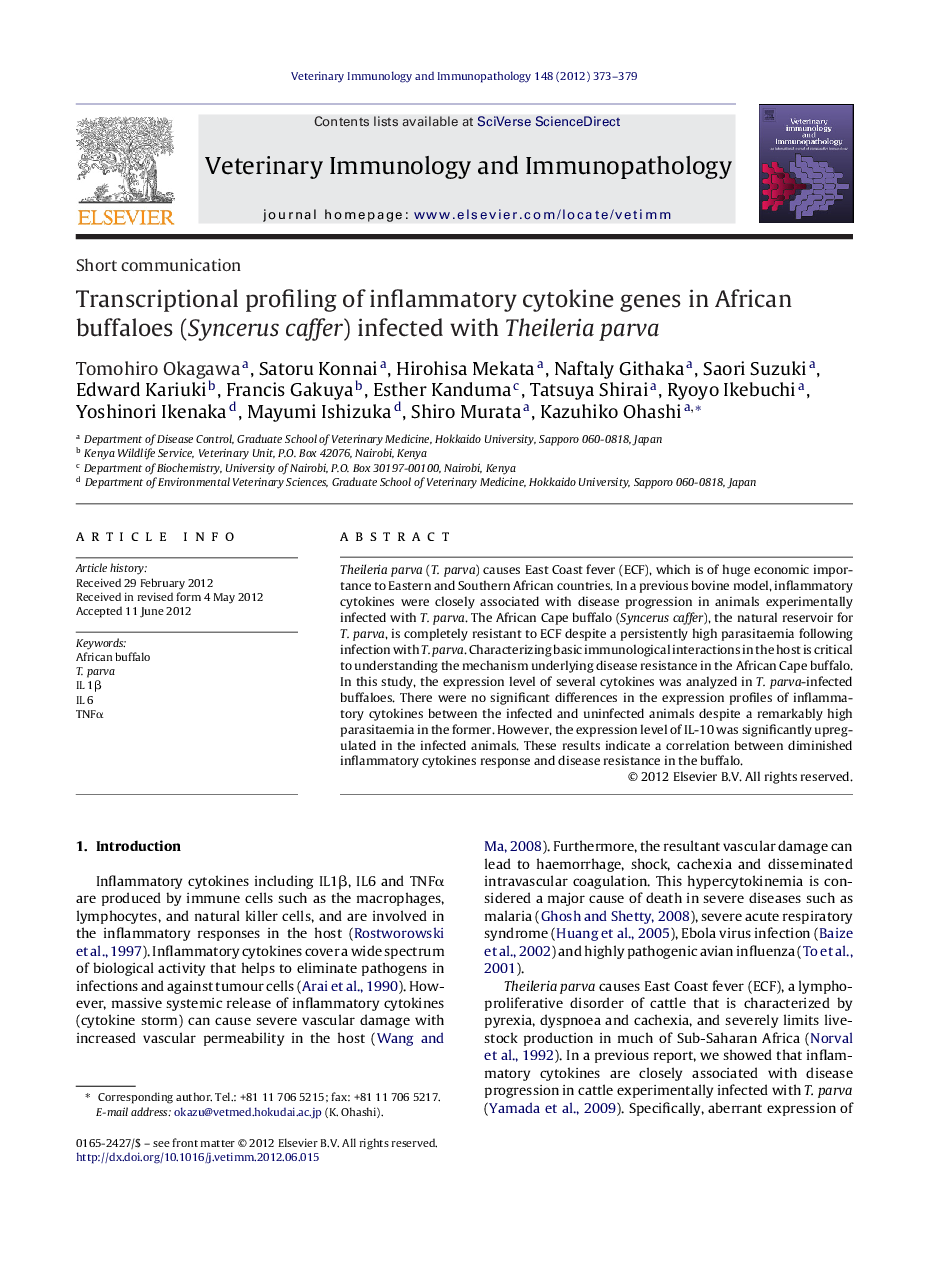| Article ID | Journal | Published Year | Pages | File Type |
|---|---|---|---|---|
| 2461881 | Veterinary Immunology and Immunopathology | 2012 | 7 Pages |
Theileria parva (T. parva) causes East Coast fever (ECF), which is of huge economic importance to Eastern and Southern African countries. In a previous bovine model, inflammatory cytokines were closely associated with disease progression in animals experimentally infected with T. parva. The African Cape buffalo (Syncerus caffer), the natural reservoir for T. parva, is completely resistant to ECF despite a persistently high parasitaemia following infection with T. parva. Characterizing basic immunological interactions in the host is critical to understanding the mechanism underlying disease resistance in the African Cape buffalo. In this study, the expression level of several cytokines was analyzed in T. parva-infected buffaloes. There were no significant differences in the expression profiles of inflammatory cytokines between the infected and uninfected animals despite a remarkably high parasitaemia in the former. However, the expression level of IL-10 was significantly upregulated in the infected animals. These results indicate a correlation between diminished inflammatory cytokines response and disease resistance in the buffalo.
